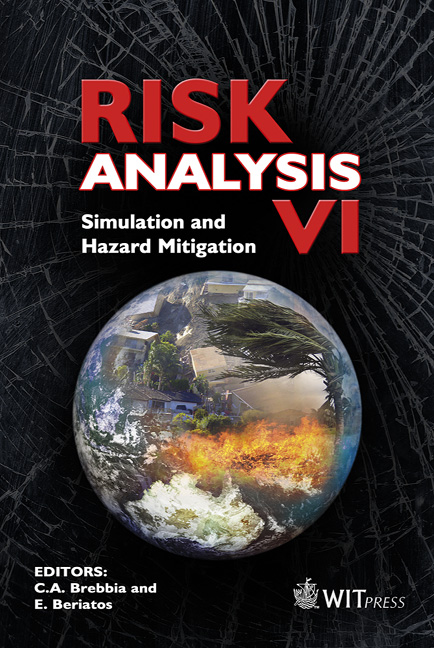A High-speed Algorithm For Repairable Stochastic Flow Networks With Converging Flows From Multiple Sources
Price
Free (open access)
Volume
39
Pages
10
Page Range
367 - 376
Published
2008
Size
497 kb
Paper DOI
10.2495/RISK080361
Copyright
WIT Press
Author(s)
M. T. Todinov
Abstract
An algorithm and software implementation have been developed for a very fast discrete-event simulator for determining the losses from failures in repairable stochastic flow networks with converging flows from multiple sources. This paper shows that the computational speed related to determining the variation of the flow through a stochastic flow network can be improved enormously if the topology of the network is exploited directly. The proposed method is based on new results related to maximising the flow in networks with converging flows. It handles repairable networks with multiple sources of production flow, multi-commodity flows, overlapping failures, multiple failure modes, redundant components and redundant branches of components. The simulator is capable of tracking the cumulative distribution of the potential losses from failures associated with the whole network and with each component in the network. Finally, by using an exemplary stochastic flow network with converging flows, it is demonstrated how the developed fast discrete-event simulator can be used for revealing the distribution of the operational losses and identifying the components with the largest contributions to the total losses from failures. Keywords: stochastic flow networks, reliability, availability, maximal flow, tree topology, potential losses from failures. 1 Introduction At an abstract level, a repairable network with flows from multiple sources can be presented as a number of sources connected to terminals (sinks) through components characterised by flow capacities and time-to-failure distributions. In
Keywords
stochastic flow networks, reliability, availability, maximal flow, tree topology, potential losses from failures.





